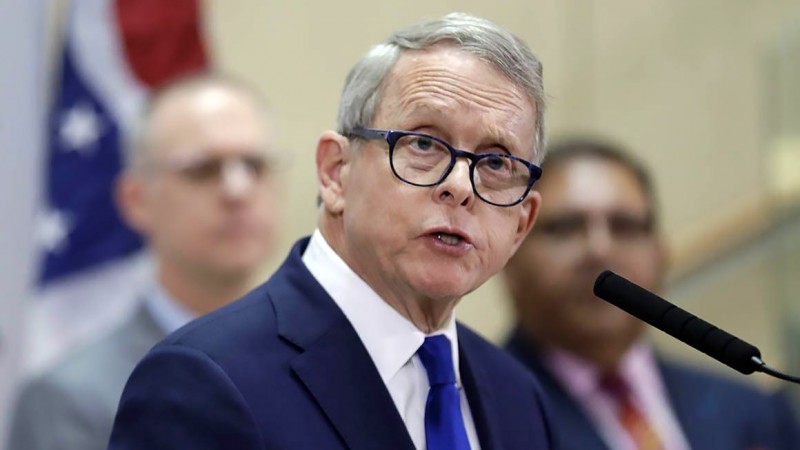Ohio Gov. Mike DeWine has signed a bill legalizing sports betting into law, thus finally bringing sporting events wagering to the Buckeyes State after a years-long process which included several false starts. DeWine signed House Bill 29 into law on Wednesday.
The bill, which allows betting in a wide range of sporting events, including college games, stipulates the market to open by January 1, 2023. However, Ohio Sen. Kirk Schuring (R-Jackson Township) said he is hopeful bettors in the state will be able to place wagers before then, reports WKYC.
“We want to get this up and running as soon as possible, but we’re building a whole new industry,” Schuring said. “We’re hoping it can be done sooner than 2023.”
Since the U.S. Supreme Court struck down a national ban on sports gaming in 2018, a series of separate bills created by both the Ohio House and Senate attempted to legalize the market in the state. They ultimately never came to fruition, until HB29 passed earlier this month.
As crafting rules and regulations for the new industry is set to be a months-long process, the Ohio Casino Control Commission, set to oversee the new market, estimates it will start accepting applications for businesses looking to enter the industry “in the summer or fall of 2022,” according to Cincinnati.com.
The state’s nascent sports gaming market is expected to be $3.35 billion after several years of operation, according to an Ohio Legislative Service Commission estimate. Sports betting will be subjected to a 10% tax on net revenue, which could bring in $7 million during the first half of 2023, and $24 million in the first full fiscal year.
According to estimates of PlayOhio, Ohio’s sports betting market is capable of producing as much as $900 million in gaming revenue, $12 billion in wagers, and $90 million in state taxes once the market matures. “Ohio is a large state that has embraced an open model, which will make it immensely attractive to both national and local operators,” said Eric Ramsey, analyst for the PlayUSA.com network, which includes PlayOhio.com. “The common element among the largest markets in the U.S. is that they all foster competition among many operators. Those markets are far more appealing to bettors, which in turn makes the industry a more reliable revenue producer for the state.”
By population, Ohio (11.7 million residents) most closely compares in size among established sports betting markets with Illinois (12.6 million residents) and Pennsylvania (12.8 million residents), currently the third- and fourth-largest sports betting markets in the U.S., respectively.
Most of the taxed money -98%- is earmarked for public and private K-12 education, while the remaining 2% goes toward problem gambling assistance. Venues looking to offer sports betting must also pay application fees, likely to exceed $10 million statewide in the program’s first months. A 0.5% of said fees will go toward helping veterans and their families.
Parties looking to offer sports wagering in Ohio will need to apply for licenses with the state Casino Control Commission, for five-year permits, which are divided into three types, depending on business and form of betting.
Type A licenses are available to casinos, racinos, sports teams and other businesses operating in Ohio for a cost of up to $2.5 million, and allow to conduct online and mobile app betting. Licensees can contract with up to two mobile betting vendors -”skins”-. The first skin costs $3 million, while the second one, only available to parties demonstrating it would bring “economic benefit” to the state, costs $10 million.
A total of 40 Type B licenses are available to brick-and-mortar stores, on initial fees ranging between $90,000 and $140,000; and at least one is set aside for a business near Cedar Point, in Erie County. Cuyahoga, Franklin and Hamilton counties can have up to five locations, while Summit and Montgomery can have up to three.
There will be 20 Type C licenses available for businesses working with an unlimited number of bars and restaurants, with appropriate liquor permits to offer spreads and over/under bets on lottery sports and gaming kiosks.



